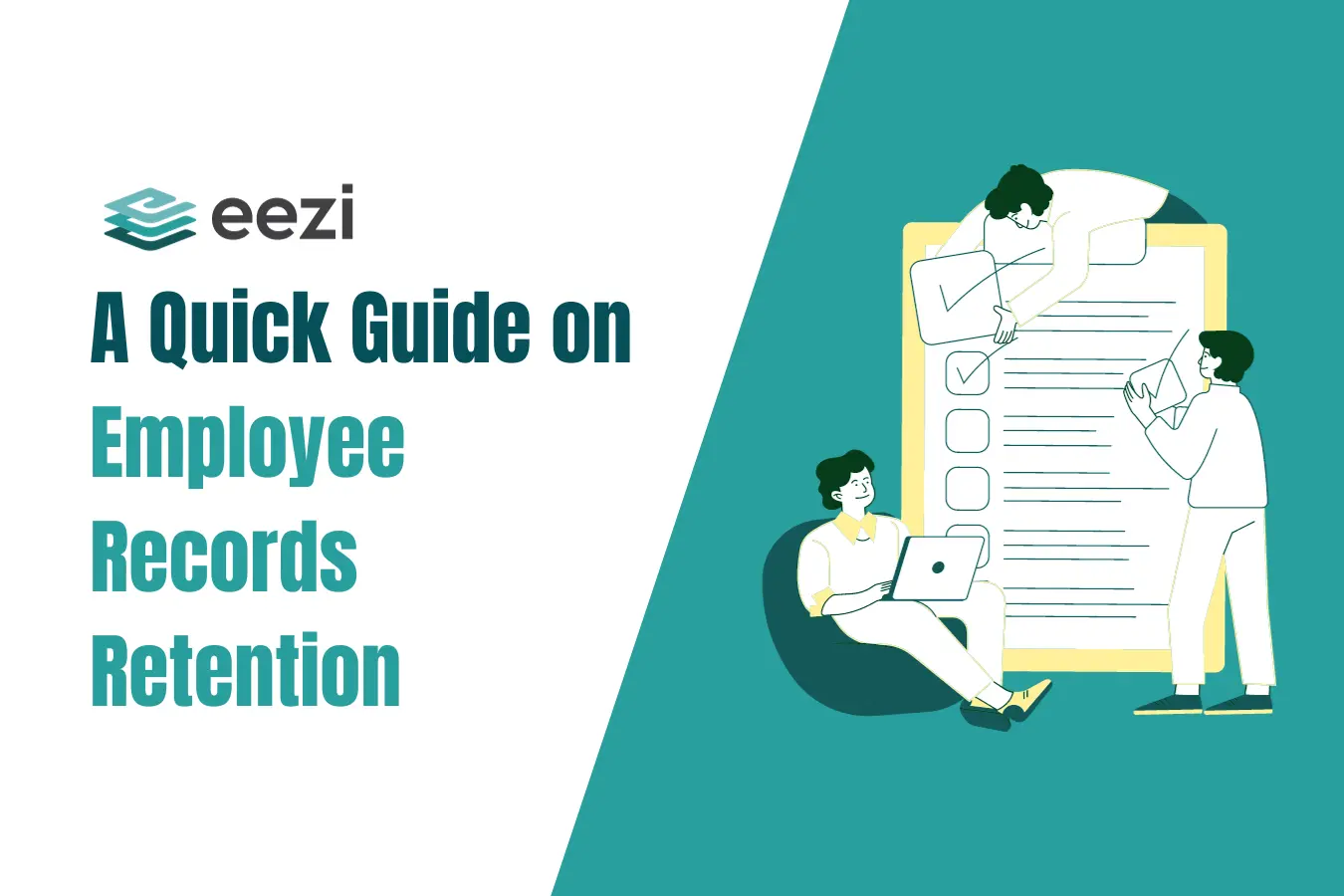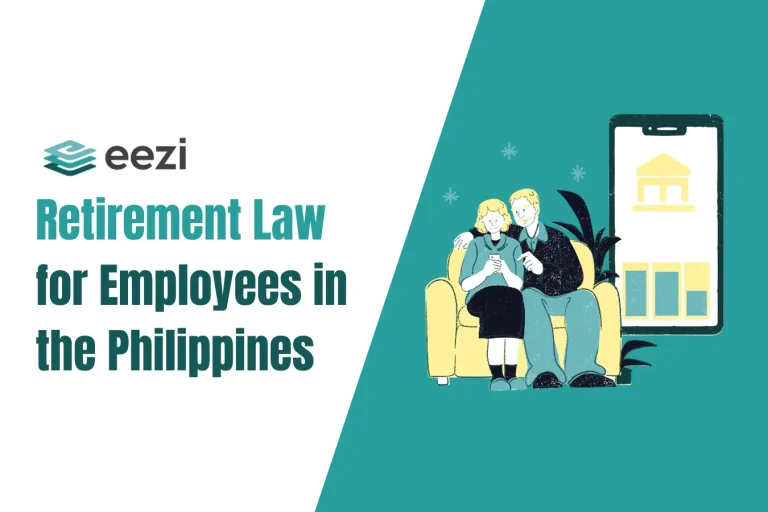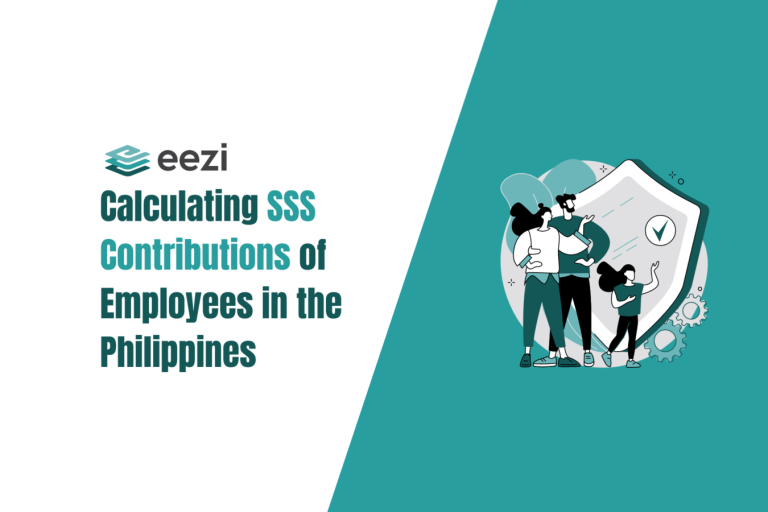What are the guidelines for proper employee records retention in the Philippines?

Records retention guidelines are essential for ensuring legal compliance, transparency, and accountability in business operations. These guidelines help organizations meet legal requirements and maintain a transparent record of activities. Moreover, they can also use historical data for future decision-making.
They also play a crucial role in risk management, as well as data privacy and security. Additionally, records retention safeguards employee rights. They ensure that records related to compensation, benefits, and working conditions are properly maintained. All of these helps protect against labor-related disputes and claims.
What is the record retention period?
The record retention period refers to how long an organization hangs on to critical records as required by laws and regulations. These personnel records can include financial documents and employee records, among others.
This practice is vital to ensure compliance with legal requirements and maintain transparency in business operations. Moreover, it can provide historical data for making informed decisions in the future.
Having an efficient record retention policy helps organizations protect themselves from legal issues and fosters accountability in their business practices.

Minimum employee records retention periods
In line with industry regulations, businesses in the Philippines are mandated to retain employee records for at least three (3) years, with a maximum retention period of ten (10) years. This covers a range of essential documents, including payroll records, time and attendance records, and employment contracts. Having a well-defined records retention strategy ensures compliance with these legal requirements while preserving valuable historical data.
The importance of records management in safeguarding vital information
Records management plays a vital role in any human resources department by safely and systematically handling information, regardless of its format. It ensures the secure storage and accessibility of essential data, from employee records to financial statements.
Moreover, it guarantees that these records relating to employment are retained for the necessary duration. Records management is instrumental in promoting transparency, reducing legal risks, and safeguarding the interests of both employees and employers.
Types of important records
A company maintaining personnel files needs to manage and keep certain types of records for a time in compliance with the labor code. Moreover, these official personnel files, including company information, should be easily accessible to reduce the risk of legal violations and penalties.
Employees’ personal data
An employee’s official personnel record includes sensitive information such as social security numbers, addresses, and medical records. The Data Privacy Act of 2012 (Republic Act No. 10173) mandates guidelines for the collection, processing, and retention of such data. Employers must prioritize the confidentiality and security of this information, storing it securely and limiting access to authorized personnel.
Payroll records
Payroll records are documents containing details about employees’ salaries, deductions, benefits, and tax contributions. Employers are legally required to retain these payroll and financial records for a minimum of three years. However, many opt to keep them for a more extended period to ensure full compliance with tax and labor regulations.
Time and attendance records
Time and attendance records are essential for tracking an employee’s working hours and attendance. These records help ensure that employees are compensated correctly for their work. Lastly, they can be useful for resolving disputes related to overtime, leaves, or absences.
Employment contracts
These contracts outline the terms and conditions of employment between the employer and employees. Employment contracts can serve as evidence in cases of labor disputes or claims of unfair labor practices.
Termination and resignation records
Termination and resignation records encompass documents like resignation letters and termination letters. Such may also include other relevant paperwork associated with employees leaving the organization. These records serve as a vital resource in addressing any potential legal or administrative issues that may arise after an employee’s departure.
Benefits and compensation records
These include compensation records, such as records of bonuses, incentives, and allowances. They are necessary to ensure that workers are compensated correctly and for tax compliance purposes.
Records of government-mandated contributions
The Philippines has a system of government-mandated contributions, including the Social Security System (SSS) and the Philippine Health Insurance Corporation (PhilHealth). Employers need to maintain records related to these contributions, including proof of remittance and acknowledgment receipts. This is in compliance with government regulations and to address any discrepancies that may arise in the future.
Audit and inspection related to record retention
In the Philippines, government agencies like the Department of Labor and Employment (DOLE) and the Bureau of Internal Revenue (BIR) are authorized to conduct audits and inspections of employer records to verify adherence to labor and tax regulations.
This makes the maintenance of precise and current employee records not only a matter of compliance but also a legal obligation. Failure to furnish the required records during an audit or inspection can result in penalties and fines.
Storage of electronic records
Philippine law acknowledges the use of electronic records for record-keeping alongside traditional paper records. Electronic records are considered valid and enforceable, provided they are securely stored and can be reproduced as needed. Employers using electronic storage systems must guarantee the protection of the records against unauthorized access. Moreover, they need to ensure that these documents can be readily retrieved for government audits or employee requests.
Employee access
Employees have the right to request access to their own records, including personal data, payroll records, and employment contracts. Employers must provide access to these types of records upon the request of their workers. This is in line with the Data Privacy Act of 2012, which grants individuals the right to access their personal data and request corrections if necessary.
Data privacy regulations
The Data Privacy Act of 2012 is a comprehensive law that regulates the processing of personal information in the Philippines. It imposes strict obligations on employers to protect the privacy and security of the workers’ personal data. Employers must implement data protection policies and measures to prevent data breaches and unauthorized access to staff and worker records.
Penalties for non-compliance
Non-compliance with your workers’ personal records retention and records management requirements can have serious consequences in the Philippines. Penalties for violations can include fines, imprisonment, or both, depending on the nature and severity of the violation. In addition to legal penalties, non-compliance can damage an employer’s reputation and result in labor disputes and claims for damages by affected workers.
Tips for ensuring compliance with employee personnel records policy
To ensure compliance with local laws and regulations regarding employee records management, here are some best practices:
- Stay Informed: Review and stay updated on local laws and regulations regarding employee records retention.
- Develop a Clear Policy: Establish a clear and comprehensive records retention policy that outlines the types of records to be retained, the retention periods, and the procedures for managing and storing these records.
- Implement Training Programs: Provide relevant personnel with training on the importance of records management and compliance with legal requirements so they understand their roles and responsibilities in maintaining accurate and secure records.
- Secure Storage: Implement secure storage systems, whether physical or electronic, to safeguard employee personnel records policy from unauthorized access, loss, or damage. Encrypt electronic records and restrict access to authorized personnel only.
- Regular Audits: Conduct regular audits of employee personnel records to ensure compliance with retention requirements and identify any gaps or areas for improvement. Address any issues promptly to maintain compliance and mitigate risks.
- Document Destruction: Develop and follow protocols for the secure destruction of personnel records that have reached the end of their retention period. Ensure that personnel records are disposed of in a manner that preserves confidentiality and complies with applicable laws.
- Employee Access: Respect employees’ rights to access their own records and establish procedures for handling request access. Ensure that requests are processed promptly and that employees receive copies of their official personnel files as required by law.
- Data Privacy Compliance: Comply with data privacy regulations, such as the Data Privacy Act of 2012, by implementing appropriate safeguards to protect employee personnel records. Obtain consent for the collection, processing, and releasing of confidential information and ensure that data is used only for lawful purposes.
Improve your record retention with eezi!
Worried about your company and employee records? eezi has robust, configurable HRIS that enhances efficiency and productivity so that you can manage records more diligently!


